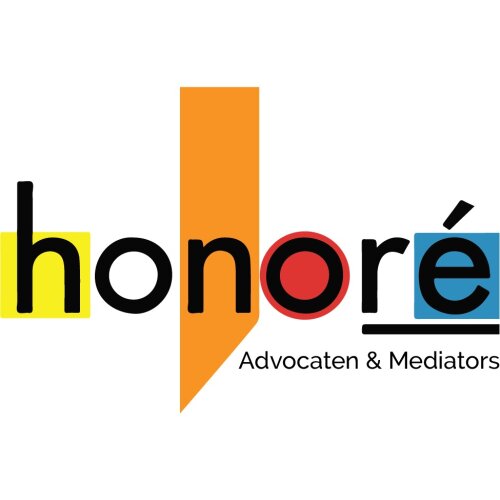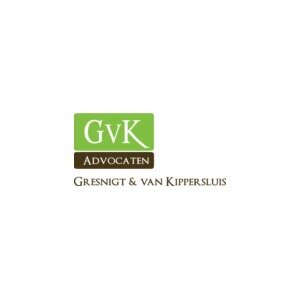Best Conveyancing Lawyers in Utrecht
Share your needs with us, get contacted by law firms.
Free. Takes 2 min.
Free Guide to Hiring a Real Estate Lawyer
List of the best lawyers in Utrecht, Netherlands
About Conveyancing Law in Utrecht, Netherlands
Conveyancing in Utrecht, Netherlands, refers to the legal process of transferring ownership of real estate from one party to another. Whether buying, selling, or refinancing property, conveyancing involves a series of legal steps and documentation. The process is regulated by Dutch law and generally handled by a specialized legal professional called a notary (notaris). Conveyancing law ensures that the transaction is legally binding, mortgage requirements are properly addressed, and the interests of both buyer and seller are protected.
Why You May Need a Lawyer
While some aspects of conveyancing in the Netherlands are managed by a notary, there are situations where additional legal advice is important. For example, if there are complex contractual terms, disputes over property boundaries, issues with ownership history, or questions about zoning regulations, having a lawyer ensures your rights are adequately protected. First-time buyers, non-Dutch speakers, or those unfamiliar with local property laws often benefit from tailored legal guidance. A lawyer can also assist in negotiations, ensure proper due diligence is performed, and help resolve unforeseen legal complications.
Local Laws Overview
Conveyancing in Utrecht is subject to Dutch property law, which contains several critical provisions. Notaries play a central role, as only a notary can officially register the transaction at the Land Registry (Kadaster). The transfer procedure typically includes signing a preliminary purchase agreement (koopovereenkomst) with a three-day cooling-off period, due diligence on deed history and possible encumbrances, and final transfer of ownership (leveringsakte) before a notary. Buyers and sellers must consider local zoning plans, municipal regulations, and possible leasehold conditions (erfpacht). Utrecht also observes national anti-money laundering regulations and requirements for financial transparency.
Frequently Asked Questions
What is the role of a notary in Dutch conveyancing?
In the Netherlands, a notary is a neutral legal professional who draws up official deeds, ensures both parties understand the transaction, and registers property transfers in the Land Registry. Notaries are required for any real estate transfer.
Do I need a lawyer if I already have a notary?
While a notary handles official registration and legal documentation, a lawyer can provide independent advice, represent your personal interests, and help navigate complex legal issues that may not be covered by the notary's impartial role.
How long does conveyancing take in Utrecht?
The process typically takes between 6 and 12 weeks, depending on conditions of sale, financing arrangements, and whether any legal issues arise during due diligence.
What are common costs associated with conveyancing?
Costs include notary fees, registration fees, transfer tax (overdrachtsbelasting), lawyer fees if applicable, and possibly real estate agent commissions. Buyers generally bear the majority of transaction costs unless otherwise agreed.
Do I need to be present in Utrecht for the conveyancing process?
Physical presence is not always required. You can authorize a representative, such as a lawyer or notary, through a power of attorney to act on your behalf for certain steps, especially if you live abroad.
What documents are needed to start the process?
Typical documents include proof of identification, property details or title deed, mortgage information, and any relevant permits or zoning documents. Your notary or lawyer will provide a comprehensive list.
Is there a risk of losing my deposit?
After signing the preliminary purchase agreement, buyers usually pay a deposit of 10 percent of the purchase price. This can be forfeited if you withdraw from the deal without a valid reason after the cooling-off period.
How is ownership registered?
Once the deed of transfer is signed at the notary’s office, the notary registers the new ownership with the Dutch Land Registry (Kadaster), making the transaction legally effective.
Are there specific rules for apartments or leasehold property?
Yes. Apartment ownership is governed by a deed of division (splitsingsakte) and association of owners (VVE) rules. Leasehold properties (erfpacht) involve specific terms granted by the municipality, which must be reviewed carefully before proceeding.
Can foreigners buy property in Utrecht?
Yes. There are no restrictions on foreign individuals or companies owning property in the Netherlands, including Utrecht, but it is recommended to seek legal advice to ensure compliance with all requirements.
Additional Resources
- Dutch Land Registry (Kadaster) for property records and registration information - Koninklijke Notariële Beroepsorganisatie (KNB) - the Royal Dutch Association of Civil-law Notaries - Municipality of Utrecht for zoning plans, local regulations, and erfpacht information - Dutch Association of Real Estate Agents (NVM) for agent recommendations and market guidance - Juridisch Loket, a public legal advice center for general legal inquiries
Next Steps
If you are considering buying or selling property in Utrecht, start by consulting a qualified notary or lawyer familiar with local conveyancing laws. Gather all relevant documents, clarify your questions regarding the transaction, and clearly communicate your expectations. Compare professionals based on expertise, experience with similar cases, and available client reviews. If you face disputes or have special circumstances, seeking early legal advice can help prevent costly mistakes. Finally, remain involved in each step and ensure you understand every document before signing. Taking these steps will help ensure a smooth, legally compliant transfer of property in Utrecht.
Lawzana helps you find the best lawyers and law firms in Utrecht through a curated and pre-screened list of qualified legal professionals. Our platform offers rankings and detailed profiles of attorneys and law firms, allowing you to compare based on practice areas, including Conveyancing, experience, and client feedback.
Each profile includes a description of the firm's areas of practice, client reviews, team members and partners, year of establishment, spoken languages, office locations, contact information, social media presence, and any published articles or resources. Most firms on our platform speak English and are experienced in both local and international legal matters.
Get a quote from top-rated law firms in Utrecht, Netherlands — quickly, securely, and without unnecessary hassle.
Disclaimer:
The information provided on this page is for general informational purposes only and does not constitute legal advice. While we strive to ensure the accuracy and relevance of the content, legal information may change over time, and interpretations of the law can vary. You should always consult with a qualified legal professional for advice specific to your situation.
We disclaim all liability for actions taken or not taken based on the content of this page. If you believe any information is incorrect or outdated, please contact us, and we will review and update it where appropriate.









